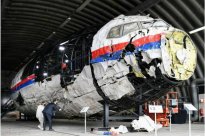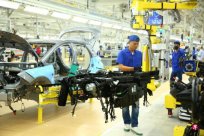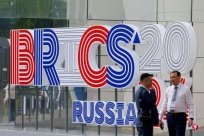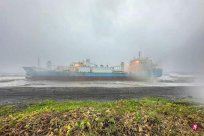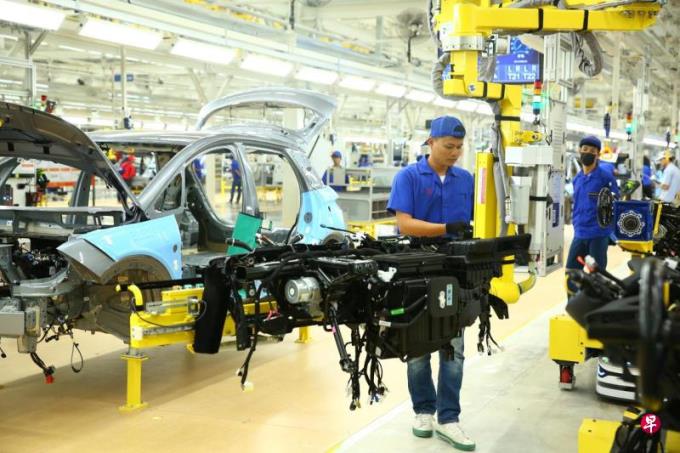
China can learn from the Japanese and American automobile war in the last century. By transferring some of the supply chain of the new energy industry overseas, providing more employment opportunities to the local area, thereby alleviating the concerns of other countries for overcapacity and achieved a win -win situation.
Chen Bo, a professor of Chinese economist and professor at Huazhong University of Science and Technology, was held on Thursday (July 25) at a public lecture held at the East Asian Research Institute of Singapore.Makes the above suggestions.
Since the beginning of this year, "overcapacity" has become a new field of confrontation between China and Europe and the United States. Disputes around the overcapacity have expanded from new energy products such as electric vehicles to traditional industries such as steel and aluminum.The European Union will start this month to Anti-subsidy tariffs The United States announced that it has increased tariffs on imported goods such as electric vehicles, batteries, steel and key minerals.
Chen Bo pointed out that China ’s overcapacity in steel and other fields is an international consensus. The Chinese government has listed overcapacity as one of the main economic challenges many years ago, and“ de -capacity ”such as steel and coal mines is the main task.EssenceHowever, the "new three" of electric vehicles, lithium batteries and solar panels There are overcapacity , and whether this phenomenon is reasonable, it is controversial.
He pointed out that the reasons for overcapacity, including demand fluctuations, rising new markets, technological upgrades and excessive investment.Taking the new energy vehicle industry as an example, this emerging industry has greatly improved production capacity under the common action of technological iteration, policy support, and capital injection.However, the rapid growth of new energy vehicles is in line with the global green development trend. The United States and Europe have also strongly supported this industry. "China has just implemented support policies."
In response to European and American countries accusing China of subsidizing state -owned enterprises through industrial policies, Chen Bo quoted data that most Chinese steel companies in the top five sales were state -owned enterprises.On the other hand, only two of the five new energy vehicle companies are state -owned enterprises; only one state -owned enterprise in the lithium battery industry is among the top five, and the top five of the solar panels are state -owned enterprises.
He further pointed out that China exported a total of 4.91 million vehicles last year, of which 1.21 million were electric vehicles.In contrast, Japanese car giant Toyota exported nearly 9 million cars around the world at the same time.."Electric vehicles and traditional oil vehicles sharing a market. Why do European and American only cause difficulties in the electric vehicle industry?"
When responding to the development of the new energy industry in China, the development of the new energy industry in China, and other countries, Chen Bo also frankly said that from the perspective of political and economic, ChinaThe rise has indeed threatened the traditional car industry. It should be learned from the Japanese -American car war in the 1970s to avoid further upgrading with other countries, especially trade frictions with the European Union.
Overseas plants , except at the time.China can also resolve disputes through voluntary restrictions on exports and markets outside Europe and the United States.Chen Bo added that China and Europe should continue to promote the efficiency of the China -Europe Comprehensive Investment Agreement (CAI) to help European auto companies expand their production in China, so that both parties can play a comparative advantage.
"If China wants to continue to participate in global competition, it must jointly create a win -win situation with other countries, rather than 'zero -sum games', because the latter must be unsustainable."

